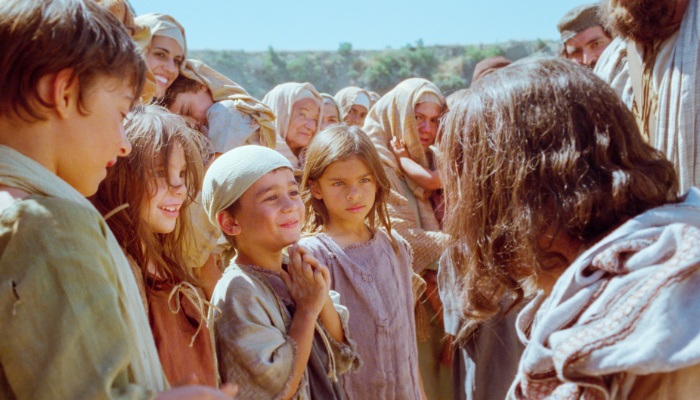Is Christ’s Culture Your Culture? If Not, Why Not?
The recent General Conference address, The Culture of Christ, given by Elder William K. Jackson, of the Seventy, included this comment about culture:
Many of our world’s problems are a direct result of clashes between those of differing ideas and customs arising from their culture. But virtually all conflict and chaos would quickly fade if the world would only accept its original culture, the one we all possessed not so very long ago. This culture dates back to our premortal existence. It was the culture of Adam and Enoch. It was the culture founded on the Savior’s teachings in the meridian of time, and it is available to all women and men once again in our day. It is unique. It is the greatest of all cultures and comes from the great plan of happiness, authored by God and championed by Christ. It unites rather than divides. It heals rather than harms.
When I initially listened to Elder Jackson give this Conference address, I admittedly thought about how it applied to “other people” from cultures different than mine; I dismissed it as if it didn’t apply to me. As I have more closely and prayerfully studied it in preparation to speak to you, my thoughts have turned inwardly. My question has been, “How does this apply to me and the cultures to which I belong or with which I identify?” Some of them might include:
- Individual culture
- American culture
- The culture of my family
- White culture
- Sports culture
- Utah culture
- Church culture
- Work culture
- Political culture
- Mid-singles culture
- The culture of my friends
- The culture of my ward
Studying this talk with myself in mind (which I believe is always a good practice), brought about important insights about identity, worth, and culture. Each insight had something in common … our Savior, Jesus Christ.
Identity and Worth
 As you read this quote about cultural identity from Elder Jackson, I invite you to ponder how it might apply to each of us individually, and collectively.
As you read this quote about cultural identity from Elder Jackson, I invite you to ponder how it might apply to each of us individually, and collectively.
It may seem that culture is so heavily embedded in our thinking and behavior that it is impossible to change. It is, after all, much of what we feel defines us and from which we feel a sense of identity. It can be such a strong influence that we can fail to see the man-made weaknesses or flaws in our own cultures, resulting in a reluctance to throw off some of the traditions of our fathers. An over fixation on one’s cultural identity may lead to the rejection of worthwhile—even godly—ideas, attributes, and behavior.
We all define ourselves in many ways, including by the various cultures with which we identify.
For much of my early life, I defined myself by what I did—what I thought made me unique or interesting or distinguished me from others. (I’m a basketball and volleyball player, I’m a student government officer, I’m a choir nerd, I’m a seminary student.) I thought what I did made me who I was. I thought what distinguished me from others made me who I was.
Then I went to BYU and had a bit of a wake-up call. I was no longer on the basketball team or the volleyball team. I was no longer in choir. I wasn’t a part of student government. And on top of that, everyone there was a member of The Church of Jesus Christ of Latter-day Saints. If I was what I did, but I no longer did anything, then who was I? If I was what made me unique, and nothing made me unique anymore, then who was I?
How do we often identify ourselves by what we do, by how we are unique? How often do other people describe us in these same ways?
- We are our profession
- We are what we enjoy
- We are our political ideologies
- We are our talents
- We are our race and ethnicity
- We are the people around us
- We are the decisions we make
- We are our cultural heritage
- We are our DNA
- We are our sexual orientation
- We are our hobbies
- We are our socio-economic status
- We are our calling/church assignment
- We are our relationships (or in my case, lack of relationship :/)
Related: 101 Things Less Important than Staying Active in the Gospel of Jesus Christ
This identity crisis brought me to my knees to ask Heavenly Father who I really was. (Because I felt like nothing). The answer didn’t come all at once, but it came. Over time, a truth that I had recited hundreds of times as a young woman finally seemed to find a permanent place in my soul. … The truth that I was a beloved daughter of God and a covenant disciple of Jesus Christ.
It was like the sweet lyrics from the Christmas song, O, Holy Night. I discovered who I was, and my soul felt its worth when I found Jesus Christ. And my weary soul continues to rejoice with the thrill of hope that comes from knowing Him.
However we identify ourselves, (race, ethnicity, gender, sexual orientation, socio-economic status, political ideation, talents, hobbies, etc.) nothing is more important than our eternal identity as BELOVED CHILDREN of HEAVENLY PARENTS and as DISCIPLES OF JESUS CHRIST. These identities have incredible eternal implications. When I truly came to understand my divine nature (IDENTITY) and eternal destiny (PURPOSE) is when I began to truly understand the WORTH of my SOUL. It changed everything for me.
I had it all wrong. The most important part of my identity wasn’t something that I did, or something that distinguished me from others … but was something that I had IN COMMON with ALL others.
In speaking of the culture of Christ, Elder Jackson stated:
This culture is grounded in the testimony that our Heavenly Father exists, that He is real and loves each one of us individually. We are His “work and [His] glory.”1 This culture espouses the concept of equal worth. There is no recognition of caste or class. We are, after all, brothers and sisters, spirit children of our heavenly parents—literally. There is no prejudice or “us versus them” mentality in the greatest of all cultures. We are all “us.” We are all “them.” We believe that we are responsible and accountable for ourselves, one another, the Church, and our world. Responsibility and accountability are important factors in our growth.
When we each individually gain a testimony of our divinity as a child of God, the next important step is to seek to gain a testimony of the divinity of everyone on this earth; that they are all children of God too; and that their souls are just as precious to God as ours.
In Doctrine & Covenants 18:10 we read: “Remember the worth of souls is great in the sight of God.”
And in Moses 1:39 we read: “For behold, this is my work and my glory—to bring to pass the immortality and eternal life of man.”
In his recent General Conference address, Love Your Enemies, President Dallin H. Oaks, First Counselor in the First Presidency, stated:
“Knowing that we are all children of God gives us a divine vision of the worth of all others and the will and ability to rise above prejudice and racism.”
In her recent General Conference address, Eyes to See, Sister Michelle D. Craig, First Counselor in the Young Women General Presidency, taught,
Understanding how God sees us prepares the way to help us see others as He does. Jesus Christ sees people deeply. He sees individuals, their needs, and who they can become. Where others saw fishermen, sinners, or publicans, Jesus saw disciples; where others saw a man possessed by devils, Jesus looked past the outward distress, acknowledged the man, and healed him. Even in our busy lives, we can follow the example of Jesus and see individuals—their needs, their faith, their struggle, and who they can become.
In gaining a testimony of the divinity of each person, and then aligning our actions with that testimony, we align our personal culture with the Culture of Christ.
The Culture of Christ

We can read the attributes of the Culture of Christ that Elder Jackson identifies and consider where there might be misalignment in our individual culture, or misalignment in our family or work culture, or in any other culture with which we identify.
The Culture of Christ is a culture of…
- Charity, true Christlike caring, is the bedrock of this culture. We feel real concern for the needs of our fellowman, temporal and spiritual, and act on those feelings. This dispels prejudice and hatred.
- We enjoy a culture of revelation, centered on the word of God as received by the prophets (and personally verifiable to each one of us through the Holy Ghost). All humankind can know the will and mind of God.
- This culture champions the principle of agency. The ability to choose is extremely important for our development and our happiness. Choosing wisely is essential.
- It is a culture of learning and study. We seek knowledge and wisdom and the best in all things.
- It is a culture of faith and obedience. Faith in Jesus Christ is the first principle of our culture, and obedience to His teachings and commandments is the outcome. These give rise to self-mastery.
- It is a culture of prayer. We believe that God will not only hear us but also help us.
- It is a culture of covenants and ordinances, high moral standards, sacrifice, forgiveness and repentance, and caring for the temple of our bodies. All of these bear witness to our commitment to God.
- It is a culture governed by the priesthood, the authority to act in God’s name, the power of God to bless His children. It edifies and enables individuals to be better people, leaders, mothers, fathers, and companions—and it sanctifies the home.
- True miracles abound in this, the oldest of all cultures, wrought by faith in Jesus Christ, the power of the priesthood, prayer, self-improvement, true conversion, and forgiveness.
- It is a culture of missionary work. The worth of souls is great.
- In the culture of Christ, women are elevated to their proper and eternal status. They are not subservient to men, as in many cultures in today’s world, but full and equal partners here and in the world to come.
- This culture sanctions the sanctity of the family. The family is the basic unit of eternity. The perfection of the family is worth any sacrifice because, as has been taught, “no other success can compensate for failure in the home.” The home is where our best work is done and where our greatest happiness is attained.
- In the culture of Christ, there is perspective—and eternal focus and direction. This culture is concerned with things of lasting worth! It comes from the gospel of Jesus Christ, which is eternal and explains the why, what, and where of our existence. (It is inclusive, not exclusive.) Because this culture results from the application of our Savior’s teachings, it helps provide a healing balm of which our world is in such desperate need.
Related: 10 Ways my Father Reminds Me of Heavenly Father
Elder Jackson exclaimed:
What a blessing it is to be part of this grand and noble way of life! To be part of this, the greatest of all cultures, will require change. The prophets have taught that it is necessary to leave behind anything in our old cultures that is inconsistent with the culture of Christ. But that doesn’t mean we have to leave behind everything. The prophets have also emphasized that we are invited, one and all, to bring our faith and talents and knowledge—all that is good in our lives and our individual cultures—with us and let the Church “add to it” through the message of the gospel.
We can be thoughtful and prayerful about how we can individually align our personal culture, and collectively align our family culture, our work culture, and other cultures with which we identify, with the Culture of Christ. As Sister Michelle D. Craig recently encouraged, we can ask two questions: “What am I doing that I should stop doing?” and “What am I not doing that I should start doing?”
My soul feels its worth when I anchor it to Jesus Christ. While there are many parts of my identity that are important to me and many cultures with which I identify, the most important part of my identity is as a daughter of Heavenly Parents and as a covenant disciple of Jesus Christ. The most important culture with which I identify is the Culture of Christ. My weary soul continues to rejoice with the thrill of hope that comes from knowing Him, and knowing that because of Him, I can repent, I can change, and I can one day return to dwell with Him in a state of never-ending happiness.
What is your personal culture, your #1 identifier? How has your life changed as you have adopted the culture of Christ? Share in the comments!
 Liz Darger grew up in Boise, Idaho, and is a life-long member of The Church of Jesus Christ of Latter-day Saints. She graduated from Brigham Young University with a bachelor’s degree in family science and a master’s degree in school counseling psychology and is currently pursuing a doctoral degree in educational leadership. Liz works in Athletic Administration at BYU and is grateful for the opportunity it provides to combine three things she loves; sports, young people, and the gospel of Jesus Christ.
Liz Darger grew up in Boise, Idaho, and is a life-long member of The Church of Jesus Christ of Latter-day Saints. She graduated from Brigham Young University with a bachelor’s degree in family science and a master’s degree in school counseling psychology and is currently pursuing a doctoral degree in educational leadership. Liz works in Athletic Administration at BYU and is grateful for the opportunity it provides to combine three things she loves; sports, young people, and the gospel of Jesus Christ.


